On Father’s Day 2024, let’s talk about the difference between being a father and being a dad – while one requires little emotional involvement, the other is a lifelong commitment to always be there for his children.
You don’t hear about the analysis of the “dad” figure by Sigmund Freud or Jacques Lacan for nothing. A father is something more similar to a concept than something one actually wants to be tangible.
Same reason why you don’t hear individuals who had been adopted saying “biological dad”. It’s always a biological father. So what is the difference between a father and a dad?
In a way, any man whose sperm was responsible for your birth is your father, technically speaking. But someone who loves you raises you, gives you his name, and also is responsible for you and your happiness is your true dad.
Related: Children Inherit These 7 Things ONLY From Their Fathers
The Difference Between Being A Father And Being A Dad: 6 Things To Know
1. One is an entity, the other an emotion.
Ever known the difference between the ratty t-shirt you cannot sleep without and an uncomfortable, unfashionable school uniform? That’s the difference between a dad and a father.
Being a dad is like having an emotional pillar to hold you; a tree you can hold on to during impossible storms. Simply put, someone who can hug you and make things okay.
A father is someone who has little or no emotional connection with you in your life. At most, this is someone who pays the bills for you because he is socially responsible for you.
Worst case scenario, this can be someone who abuses you emotionally, mentally, or physically; he is nowhere near the ray of sunshine a dad is.
Any fertile man can be a father, but it takes a lot of love to be a dad. As a matter of fact, dads are the real-life superheroes in our lives, who live up to the great responsibilities that come with their great power.
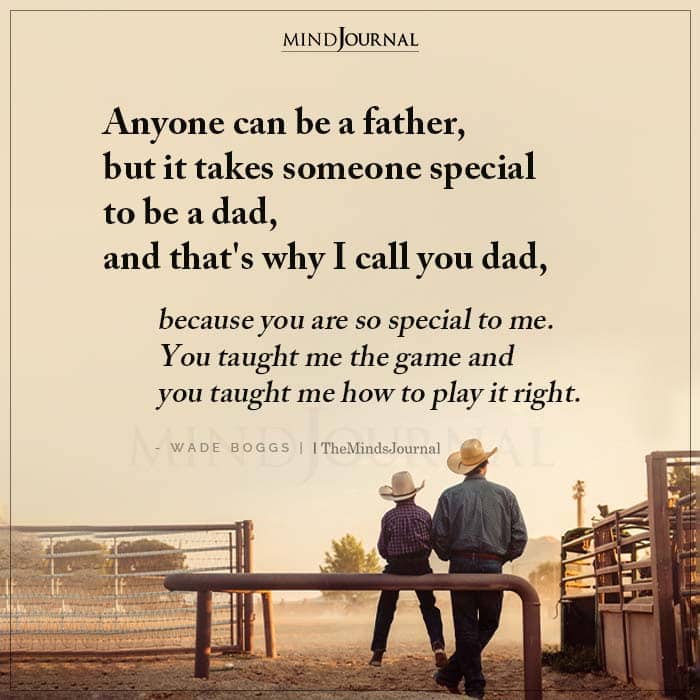
2. Dads are always present. Fathers are not.
Being a dad, you are holistically responsible for the well-being of your children. They are supportive in all aspects.
- Economical: Paying all the bills and taking care of the justified wants of the child.
- Social: Dads are responsible for making great citizens of society out of their children. This also means using justified means of disciplining the child, when needed.
- Physical: Dads will take care of your health, in every way they can; mental: they will make you healthy human beings mentally and make sure the stresses of life do not get to you.
- Emotional: They are the bedrock of your life when everything else does you wrong.
Fathers might just not be there. As a matter of fact, that is the case with so many children all over the world, who grow up without someone to look up to like a dad.
Related: Here’s To The Fathers, From The Daughters Who Love Them Beyond Measure
3. The gaps in talking – a dad listens, a father hears.
A child’s mind is like a blank slate. It needs the right amount of stimuli, the right kind of stimuli, and a manner that makes the stimuli comprehensible. Dads are experts at doing this, and this is one of the major differences between a father vs dad.
They will go down to the child’s level to make themselves and their wisdom accessible to the child. They will make sure the bridge of communication is strong.
Being a dad is hard, but dads make an effort to better understand their children, thinking at their level – they LISTEN to them. This makes their children better equipped for life, as they understand all the important lessons about life early on, and pretty well.
Fathers make no effort to bridge the gap between themselves and their children. They are lackadaisical and in consequence, their children end up lacking in life skills, and in the worst of cases, problematic.
Remember Henry Bowers and his father, from IT? That’s what I mean.
4. Dads turn out to be their children’s superheroes while fathers are more likely a symbol of fear.
Dads thanks to their perks of personality and their essential, holistic goodness, end up becoming their children’s superheroes. They end up becoming the image the children want to grow up to emulate. This means they must be successful and happy themselves.
Being a dad comes with the added responsibility of being at peace with yourself too. This is because happiness and peacefulness are contagious, and kids are quick to pick up on things like this.
Fathers, on the other hand, summarizing Freud, end up becoming something of an ever-present symbol of fear. They end up personifying frightening punishments in the child’s subconscious.
Freud’s patient known popularly as the Ratman exhibited fantasies in which his father personified all kinds of vile torture.
Keeping psychoanalysis aside, fathers might or might not end up living up to the ideals that come easy to dads. This is because they do not consider the experience of child-rearing to be as rewarding as it actually is. This is another major difference between a father vs dad.
Related: Children Inherit These 7 Things ONLY From Their Fathers
5. Fathers are judgmental while a dad understands.
A very appropriate metaphor for this whole conundrum between dads and fathers could be in the largest-selling book in the world: The Holy Bible. God in the Old Testament, is a father.
Being a father, he is always angry, killing cattle and cursing characters who disobey him even in the slightest of ways. He personifies the law at that stage. Not exactly pleasant.
In the New Testament, however, thanks to the love of Jesus Christ, God becomes more similar to a dad. He is merciful, and forgiving, and personifies love among human beings.
He is soft and does not curse human beings. He disciplines them but also gives them an outlet for mercy. Dads, hence, are by nature, non-judgmental. They never forget the fact that they too were your age someday; as a result, in case you make a mistake, they help you out. They pick you up, dust you and hug you, and ready you for the next day.
Fathers might just be judgmental. They might just expect outlandish things from you and might be very vocal about their disappointment with you if you fail to live up to their standards.
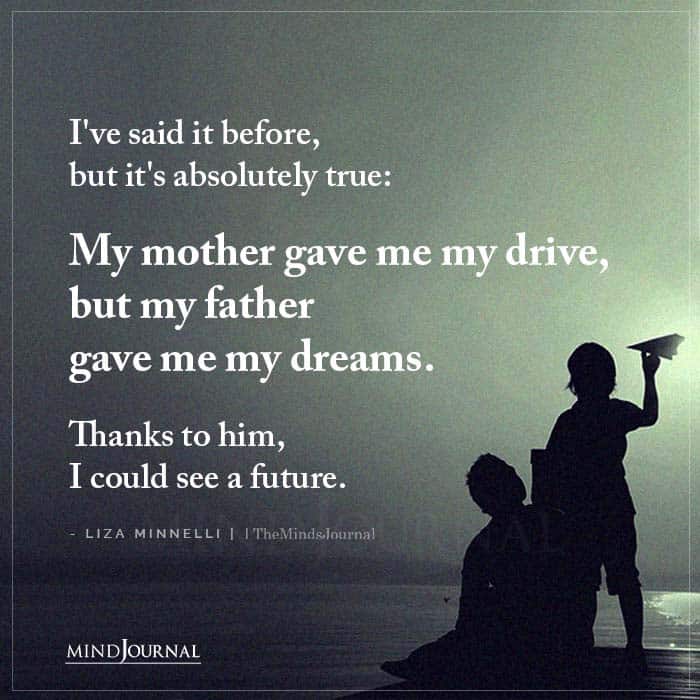
6. While a dad will accept a child’s flaws, a father might show rejection if their expectations aren’t met.
In a world where millions of people face rejection on the basis of their personality and life choices, dads are a boon. A dad will never reject their children. He will try to understand what goes on through their heads that make them take those particular avenues in life.
Fathers might just reject their children if their notions/expectations/hopes aren’t met.
In a world of fathers, always be a dad to your child. It is even more rewarding than you think. The differences between a father vs dad are many, but that is how you know how lucky, or rather unlucky.
On that note, happy Father’s Day 2024 to all the incredible dads out there!
The Minds Journal Articles Volume -1 is Copyright Protected vide Regd.# L-103222/2021
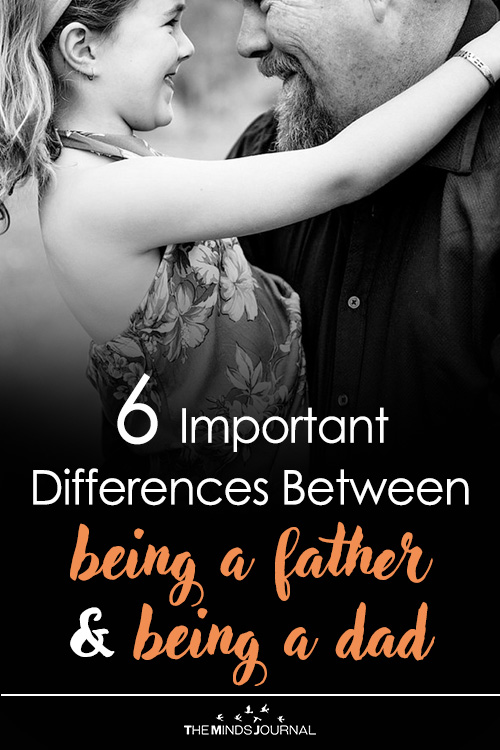
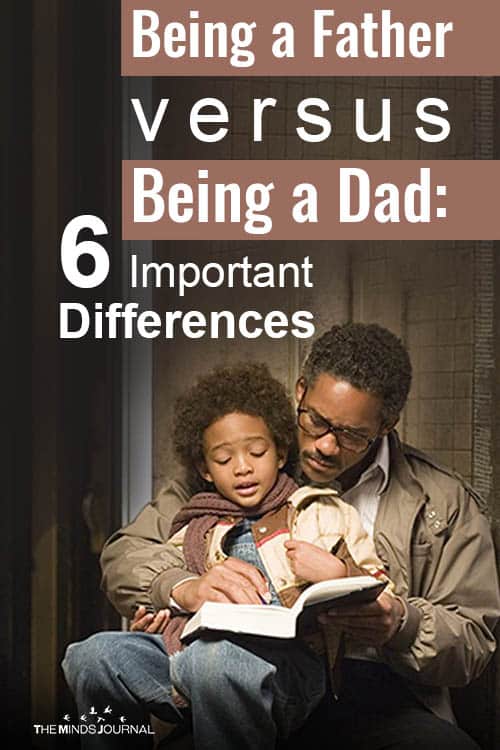
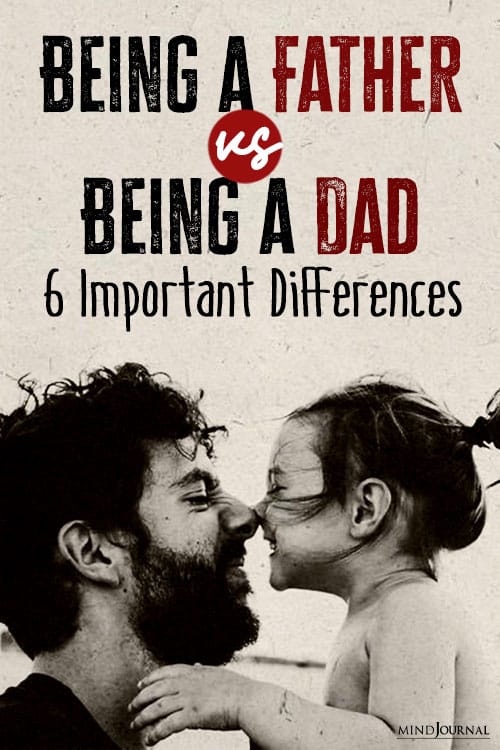
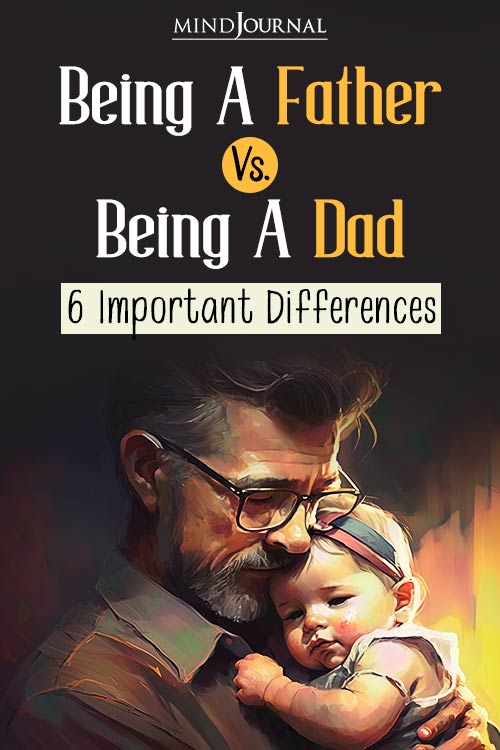
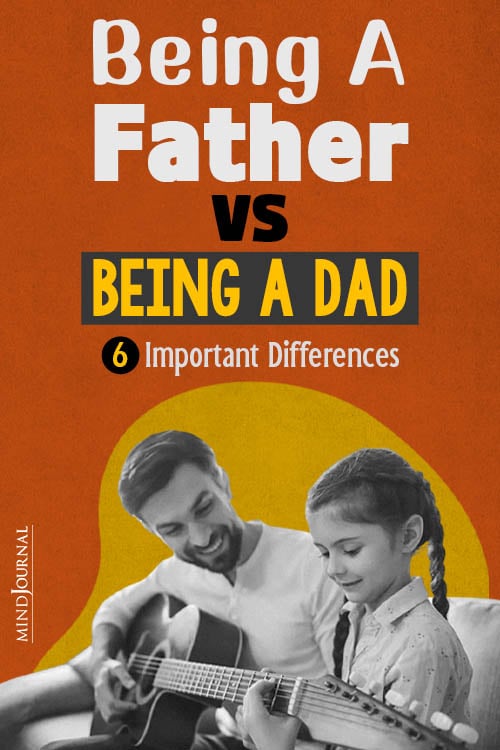

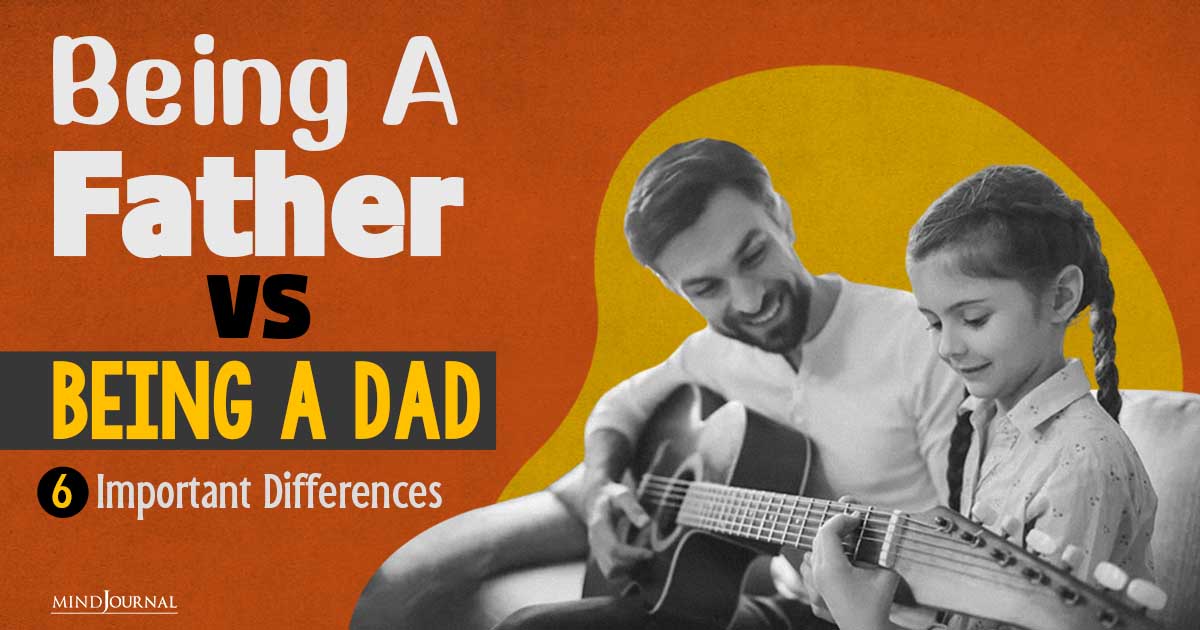







Leave a Reply